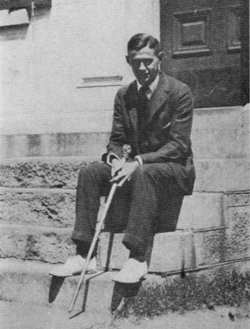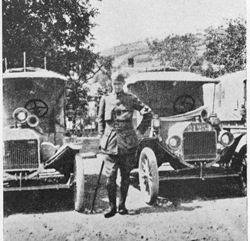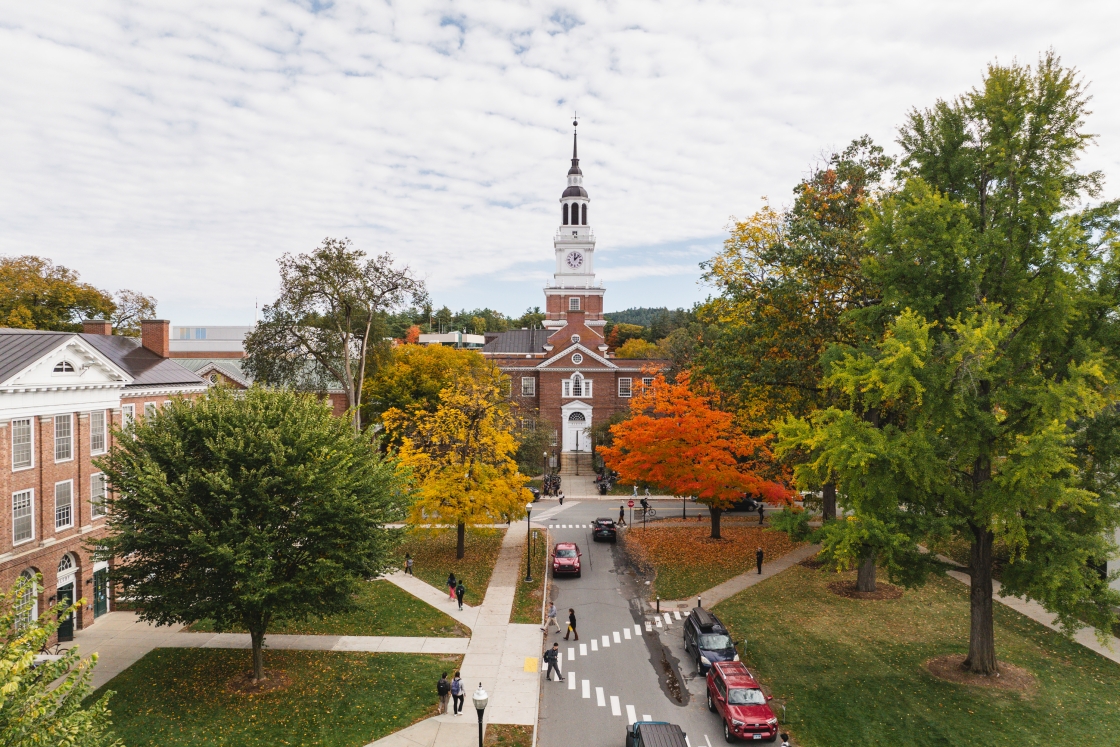Read the full story, published by Rauner Special Collections Library.

Richard Nelville Hall was a member of the Class of 1915. (Photo courtesy of Rauner Special Collections Library)
Richard Nelville Hall graduated from Dartmouth on June 23, 1915. Six months later he was dead, the first Dartmouth man to perish in World War I. By all accounts, he was a fine young man, beloved by all who knew him. Born into an academic family in Ann Arbor, Mich. (where his childhood home still stands), he matriculated at the University of Michigan, then transferred to Dartmouth at the beginning of his sophomore year. His older brother, Louis, was a member of the Class of 1911.
Immediately upon graduation, Dick Hall volunteered to serve as a driver in the Dartmouth Ambulance Corps in France, which was part of the American Field Service Ambulance Corps. Keep in mind the fact that the United States did not officially enter the war until April 1917, so Hall’s service was that of a noncombatant and humanitarian.

After graduating from Dartmouth, Hall volunteered to serve as a driver in the Dartmouth Ambulance Corps in France, which was part of the American Field Service Ambulance Corps. (Photo courtesy of Rauner Special Collections Library)
Nevertheless, he faced great danger and peril every day, and his courage and valor were legion.
Late on the night of Dec. 24, 1915, or in the early hours of Dec. 25 (reports vary), a stray German shell hit the ambulance Hall was driving in the Vosges mountain range in eastern France, where fierce trench fighting was raging. He was killed instantly, and his body discovered several hours later in the ruined hulk of his ambulance. He is buried in the French Military Cemetery at Moosch, Alsace-Lorraine.
Edward Tuck, Class of 1862, a benefactor of Dartmouth and an ardent Francophile, paid for a memorial to Hall that can be seen just inside the west door of Baker Library on the lower level.

